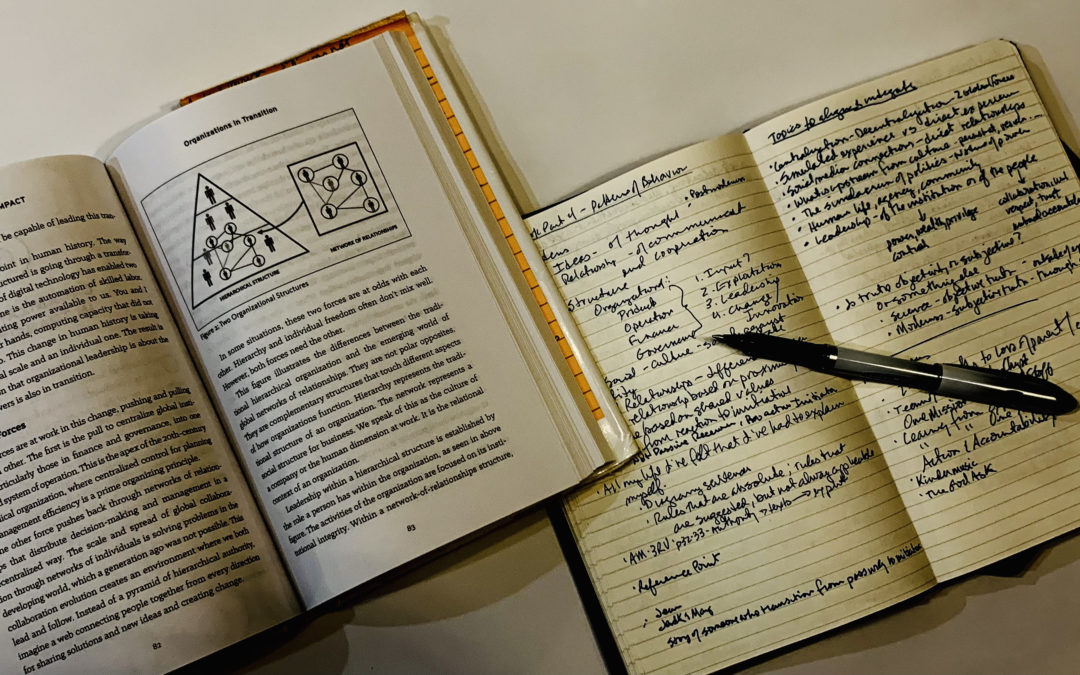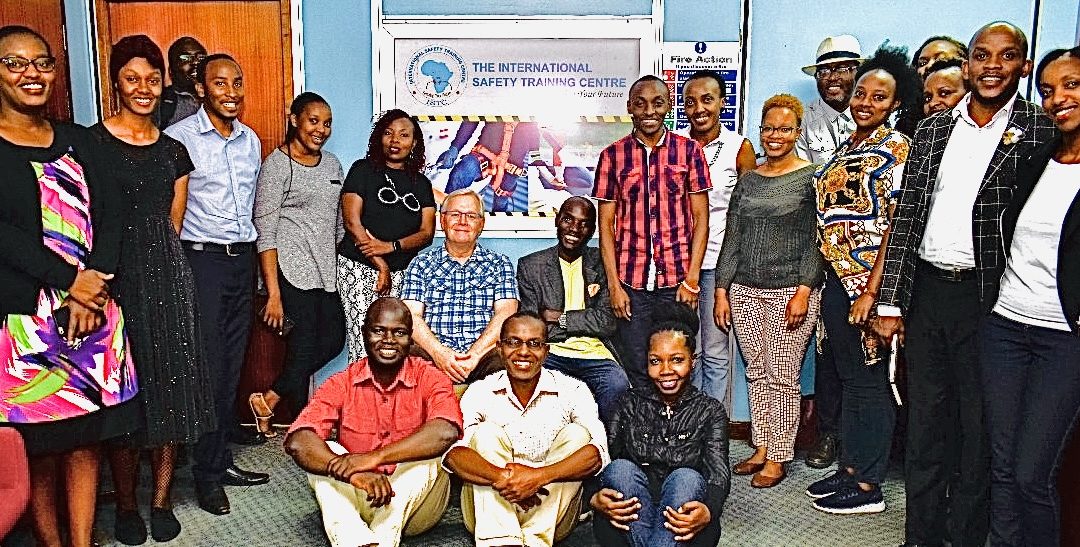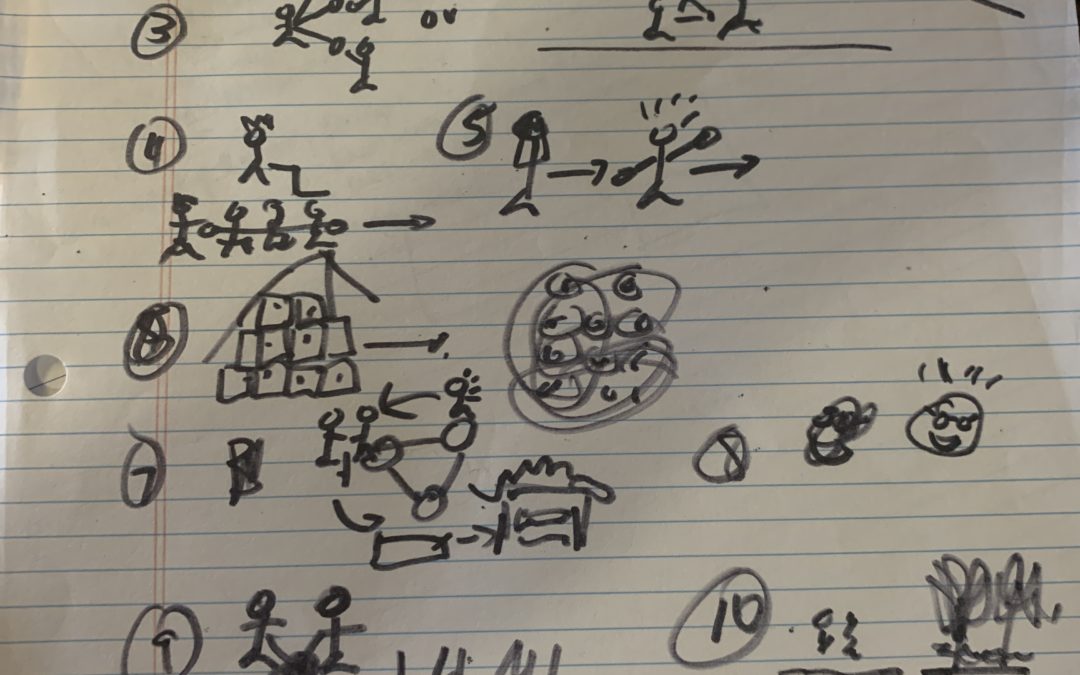


The Future of Leadership
The future of leadership is not its past. Complexity and dynamism are forcing our world to change. Many organizations and nations will not survive.
Two of my African colleagues have commented to me recently about their optimism for the future of their continent. One told me that 70% of Africa is now under 30 years of age. The other said that by the year 2050, there will be one billion people in Africa under the age of 25.
As I try to make sense of what these numbers mean for the future of Africa and the world, I realized that it points to a dramatic change in how we develop and deploy leaders. Not only how we develop them, but the kind of organizations that they will be willing to work in. This is a discussion that we need to have.

Guiding Principles for Living in Transition
Have you ever prepared to cross a street, and there at the curb is a big, deep puddle? You don’t want to step in it. So, you look for a way around, or you try to decide if you can jump across it. I believe this is where many of us are right now. We are stuck trying to figure out a way around the complexity of a global coronavirus pandemic, the swings of political ideology upon our lives, and what the future holds for you, your family, your business, the organizations you contribute to, and your community as your home.
Four years ago as I was preparing to publish Circle of Impact: Taking Personal Initiative To Ignite Change, I put together a set of five guiding principles that I felt were a simple summary of the book. Over the past several months, I realized that the time for a refresh of the principles was needed. Several new things had begun, and I needed to reflect it a revised Guiding Principles of the Circle of Impact.
CIRCLE OF IMPACT FIVE GUIDING PRINCIPLES
1. ALL Leadership Begins with Personal Initiative to Create Impact.
2. We are ALL in Transition. Every one of us. ALL the time.
3. Impact is the Change that Makes a Difference that Matters.
4. Impact Expands through Networks of Relationships.
5. Start Small. Act Locally. Share Globally. Take the Long View.

1000 Years of Joys and Sorrows
Two of Ai Wei Wei’s sayings I treasure because they so resonate deeply with my beliefs about leadership.
“Your own acts tell the world who you are and what kind of society you think it should be.”
“I call on people to be ‘obsessed citizens,’ forever questioning and asking for accountability. That’s the only chance we have today of a healthy and happy life.”
This is the spirit of personal responsibility that points to my conviction that “all leadership begins with personal initiative to create impact that makes a difference that matters.” This responsibility is not something imposed upon us. It is not an obligation or a requirement. Rather, it is the expression of our individual humanity.
Ai Wei Wei suggests that there is a transition in our understanding of leadership taking place. It is from a person being in authority to an expression of our individual humanity. This is why accountability is so essential to a healthy life for a society.
“I see myself not as a leader but as somebody who initiates things or finds the problem or provokes a discussion. You have to be always ready to engage, willing to participate. When events or history happen, you just have to be aware and respond.”

Leaders at Play
I’m doodling. This picture is of my first thoughts about the drawings that will accompany each chapter of my Circle of Impact Africa book.

The Meltdown of Friendships
Over the last year, I have had a number of disturbing conversations that have effectively ended a number of friendships. It has been a painful experience because I care about these people. I am finding that I am not the only one who has experienced the emotional melt-downs that lead to broken relationships. The problem is that I am not the one having the psychotic break. These meltdowns are an emotional break from reality.
If you were to talk to these friends of mine, I suspect they would tell you that I am responsible. I have been told that I am insane, that I believe in conspiracy theories, which I don’t, and that I am a danger to society, which I am not. I have had phone calls abruptly end in mid-sentence and people tell me that they don’t want to see me. In almost every case, a reasonable explanation of my views is not permitted. If you read this blog or read the books that I have written, you’ll understand my perspective. I want to make sense of the world. In doing so, it means we know how to act in it.
My point here is not to argue my perspective. Instead, I am more concerned with helping people discover their own minds. You don’t have to see things as I do. Hardly anyone does. It is important that you have clear reasons why you make the decisions that you do and take the actions that follow those decisions. You do need this for your own peace of mind. If in the process you find out that you made some decision based on faulty reasoning or inadequate information, you can say to yourself, “Okay. Glad to know that. Let’s fix this.”

